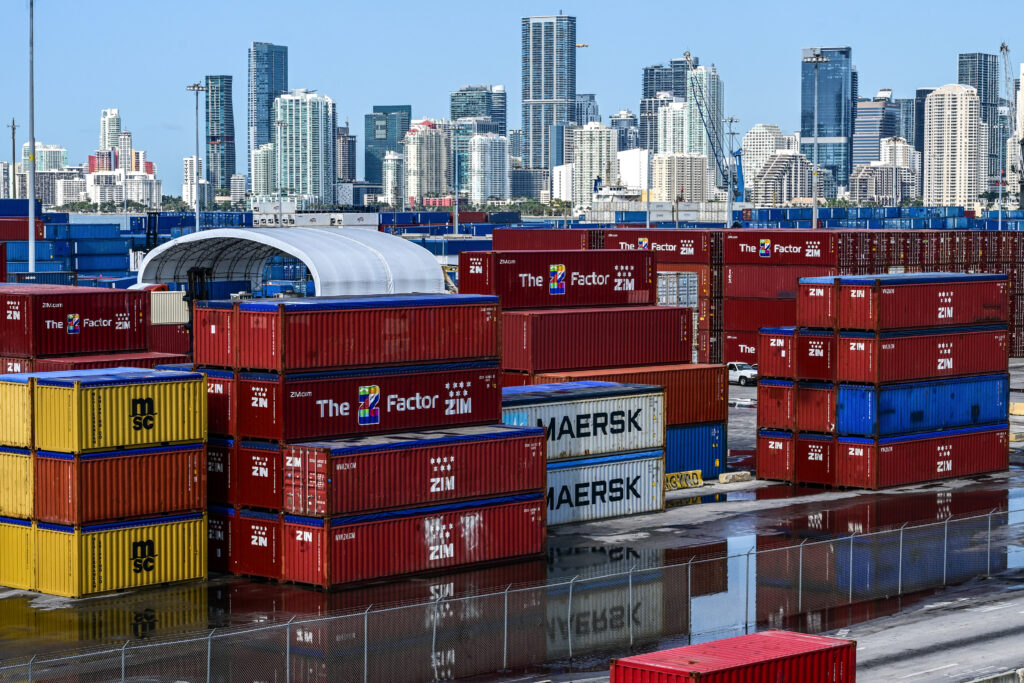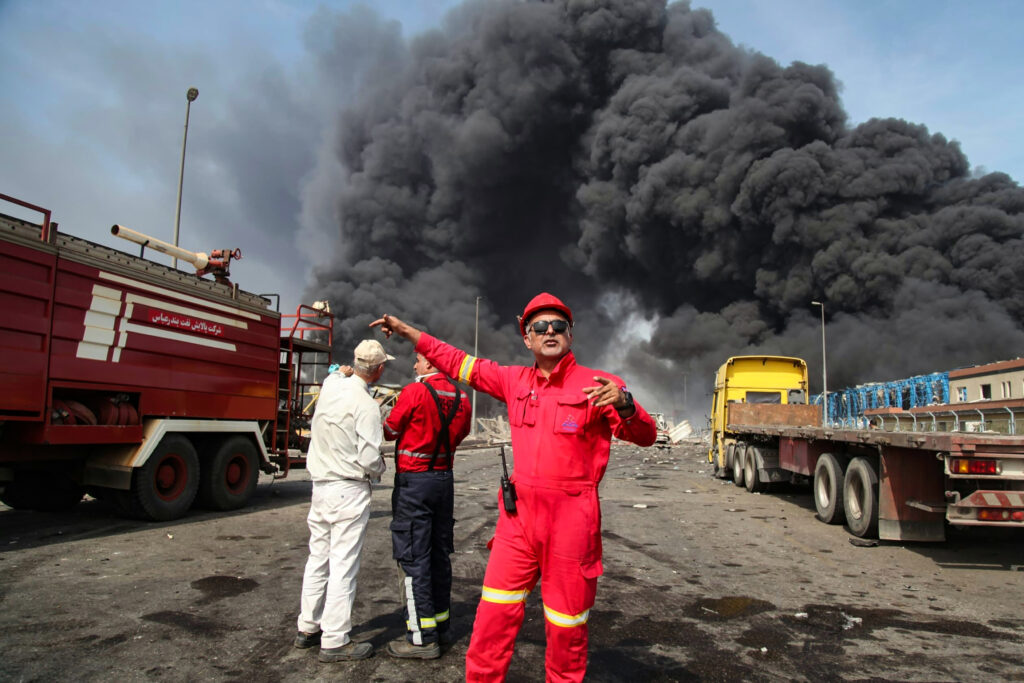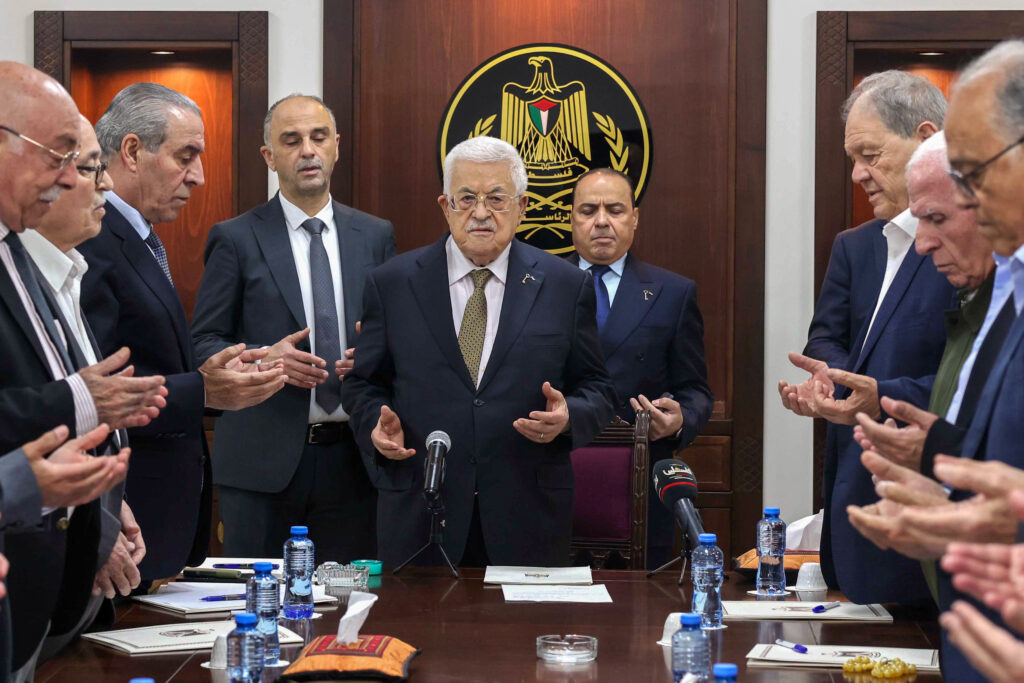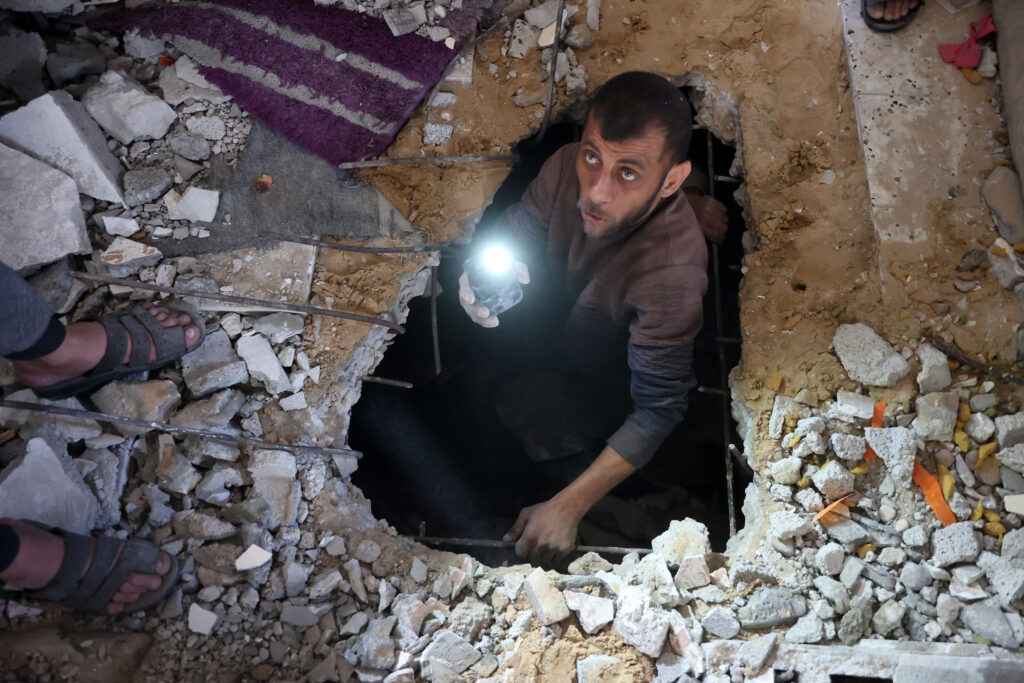AFP Asia Business
Trump trade war pushes firms to consider stockpiling
Stockpiling is the reflex response by firms to the imposition of tariffs, but with the rapidly-changing position of the Trump administration, companies are finding that it isn’t so straightforward this time around.Whether it’s the luxury, electronics or pharmaceutical sectors, US President Donald Trump’s unpredictability complicates the calculations of firms.Some companies didn’t wait for Trump’s April …
Trump trade war pushes firms to consider stockpiling Read More »
Chinese tea hub branches into coffee as tastes change
At a mountainside cafe in southwestern China, Liao Shihao brews handfuls of locally grown beans into steaming cups of coffee, a modern twist on the region’s traditional drink.For centuries, Pu’er in Yunnan province has given its name to a type of richly fermented tea — sometimes styled “pu-erh” — famous across East Asia and beyond.But …
Chinese tea hub branches into coffee as tastes change Read More »
Major blast at Iran port kills 14, injures 750
A massive explosion tore through Iran’s largest commercial port on Saturday, triggering a major blaze, with 14 people killed and 750 injured so far.The blast occurred at Shahid Rajaee Port in southern Iran, near the Strait of Hormuz through which a fifth of world oil output passes.Although the cause of the blast was not immediately clear, the port’s customs office said in a statement carried by state TV that it probably resulted from a fire that broke out at the hazardous and chemical materials storage depot.The New York Times reported that a person with ties to Iran’s Islamic Revolutionary Guard Corps, speaking on condition of anonymity to discuss security matters, told the newspaper that what exploded was sodium perchlorate, a major ingredient in solid fuel for missiles.Interior Minister Eskandar Momeni said on Telegram early Sunday that there were “14 dead and 750 injured so far in the explosion”.With choking smoke spreading throughout the area, all schools and offices 23 kilometres (14 miles) away in Bandar Abbas, the capital of Hormozgan province, have been ordered closed on Sunday, state TV said, to allow authorities to focus on the emergency effort.”The intensity of the fire in Shahid Rajaee Port has increased and it is possible that the fire could spread to other areas and containers,” state TV said late Saturday.Strong winds were complicating efforts to extinguish the flames, a reporter for the broadcaster said.Shahid Rajaee, more than 1,000 kilometres south of Tehran, is Iran’s most advanced container port, according to the official IRNA news agency.Images from IRNA showed rescuers and survivors walking along a wide boulevard carpeted with debris after the blast.Flames engulfed a truck trailer and blood stained the side of a crushed car, while a helicopter dropped water on massive black smoke clouds billowing from behind stacked shipping containers.Citing local emergency services, state TV reported that “hundreds have been transferred to nearby medical centres”, while the provincial blood transfusion centre issued a call for donations.Iranian President Masoud Pezeshkian expressed sympathy for the victims of the deadly blast, adding he had “issued an order to investigate the situation and the causes”.He said Momeni would go to the area to look into the incident.Speaking later at the scene, Momeni told state TV: “All resources from other cities and Tehran have been dispatched… and we hope to be able to extinguish the fire in the coming hours.”In a video posted to social media, which AFP was not able to verify, a man filming the disaster said “my truck was completely destroyed and my friend died”. A dead body can be seen on the ground.- Containers exploded -Saturday is the start of the working week in Iran, meaning the port would have been busy with employees.Three Chinese nationals were “lightly injured”, China’s state broadcaster CCTV reported, citing its Bandar Abbas consulate.Mehrdad Hassanzadeh, head of the province’s crisis management authority, told state TV that “the cause of this incident was the explosion of several containers stored in the Shahid Rajaee Port wharf area”.The explosion was so powerful that it was felt and heard about 50 kilometres away, Fars news agency reported.”The shockwave was so strong that most of the port buildings were severely damaged,” Tasnim news agency reported.The United Arab Emirates expressed “solidarity with Iran” over the explosion and Saudi Arabia sent condolences.The state-owned National Iranian Oil Products Distribution Company said in a statement carried by local media that the explosion “has no connection to refineries, fuel tanks, distribution complexes or oil pipelines”.It added that “Bandar Abbas oil facilities are currently operating without interruption”.The explosion comes several months after one of Iran’s deadliest work accidents in years.The coal mine blast in September, caused by a gas leak, killed more than 50 people at Tabas in the east of the country.Saturday’s explosion also came as Iranian and US delegations met in Oman for high-level talks on Tehran’s nuclear programme. Both sides reported progress, with a US official calling it “positive and productive”.
Palestinian president Abbas appoints aide as potential successor
Palestinian president Mahmud Abbas appointed a close aide as the first ever vice president of the Palestine Liberation Organization (PLO) on Saturday, positioning him as a potential successor to the veteran leader.Hussein al-Sheikh was appointed by Abbas, 89, after the vice presidency position was created during a convention held in Ramallah this week.The new post follows years of international pressure to reform the PLO and comes as Arab and Western powers envision an expanded role for Abbas’s Palestinian Authority (PA) in the post-war governance of the Gaza Strip.”Palestinian president Mahmud Abbas appointed Hussein al-Sheikh as a deputy (vice president) of the PLO leadership,” a member of the organisation’s executive committee, Wasel Abu Yousef, told AFP.Founded in 1964, the PLO is empowered to negotiate and sign international treaties on behalf of the Palestinian people, while the PA is responsible for governance in parts of the Palestinian territories.The PLO is an umbrella organisation comprising several Palestinian factions, but not the militant groups Hamas and Islamic Jihad, which are currently at war with Israeli forces in Gaza.Senior Hamas official Bassem Naim gave the appointment a frosty reception.”The Palestinian people are not a herd to be imposed upon leaders with dubious history who have tied their present and future to the occupation,” he said in a statement.”Legitimacy is held only by the Palestinian people, and its tools are the rifle for resisting the occupation, and the ballot box. The guardianship over our people is long gone.”Sheikh, 64, is a veteran leader of Abbas’s Fatah movement, which dominates the PA, and is considered close to the president.He spent more than 10 years in Israeli jails in the late 1970s and early 80s, during which he learned Hebrew.In 2022, he was made the PLO executive committee’s secretary-general and head of its negotiations department, a sensitive portfolio, demonstrating his close ties to Abbas.Abbas also recently appointed him as the head of a committee overseeing Palestinian diplomatic missions abroad.- ‘Prelude to creating a successor’ -Palestinian analyst Hani al-Masri called for the creation of a vice presidential post within the PA itself.”This is not a reform measure but rather a response to external pressure,” said Masri of the Palestinian Center for Policy Research and Strategic Studies.”What is required is a vice president for the PA to whom the powers could be transferred,” he told AFP.However, analyst Aref Jaffal said the new role was created to pave the way for someone to take the reins from Abbas, “as there are many things the Palestinian situation requires”.”The Palestinian political system is already miserable, so I believe that all these arrangements are a prelude to creating a successor to Abbas,” Jaffal, the director of the Al-Marsad Election Monitoring Center, told AFP.Saudi Arabia welcomed the “reform steps” taken by Abbas in appointing Sheikh as his deputy.”These reform steps will strengthen Palestinian political efforts… foremost among them the right to self-determination through the establishment of their independent state along the 1967 borders, with East Jerusalem as its capital,” the Saudi foreign ministry said.In March, at a summit in Cairo about Gaza’s post-war future, Abbas had announced he would create a vice presidency within the PLO.- Move opposed by factions -Abbas has been head of the PA since 2005 following the death of Palestinian leader Yasser Arafat. The following year he was elected to a four-year term, with no presidential vote since.According to Palestinian officials, in the event of Abbas’s death or resignation, the vice president would be expected to become the acting head of the PLO and of the State of Palestine, which is recognised by nearly 150 countries.Abbas had brought a proposal for creating the vice president post during a PLO convention this week, but it was opposed by several factions who staged a walkout.They argued that the initiative threatened the PLO’s sovereignty and was a sign of foreign interference.The PA is teetering on the brink of financial collapse and, following the Hamas attack on Israel that sparked the war in Gaza, several international donors have increasingly insisted that financial support be tied to concrete political and institutional reforms.On Wednesday, Abbas argued that creating a vice presidency would strengthen Palestinian institutions and bolster international recognition of the Palestinian state.Some analysts view the move as a calculated attempt by Abbas to project the appearance that he is decentralising power.
Hamas says open to 5-year Gaza truce, one-time hostages release
Hamas is open to an agreement to end the war in Gaza that would see all hostages released and secure a five-year truce, an official said Saturday as the group’s negotiators held talks with mediators.A Hamas delegation visited Cairo to discuss with Egyptian mediators ways out of the 18-month war while, on the ground, rescuers said Israeli strikes in Gaza killed at least 35 people.Nearly eight weeks into an Israeli aid blockade, the United Nations says food and medical supplies are running out in the territory.The Hamas official, speaking to AFP on condition of anonymity, said the Palestinian militant group “is ready for an exchange of prisoners in a single batch and a truce for five years”.A statement later from Hamas said its delegation had left Cairo on Saturday evening.The latest bid to seal a ceasefire follows an Israeli proposal Hamas rejected earlier this month as “partial”. The new proposal calls instead for a “comprehensive” agreement to halt the war ignited by the group’s October 7, 2023, attack on Israel.The rejected Israeli offer, according to a senior Hamas official, included a 45-day ceasefire in exchange for the return of 10 living hostages.Hamas has consistently demanded that a truce deal must lead to the war’s end, a full Israeli withdrawal from the Gaza Strip and a surge in humanitarian aid.An Israeli pullout and a “permanent end to the war” would also have occurred — as outlined by then-US president Joe Biden — under a second phase of a ceasefire that had begun on January 19 but which collapsed two months later.Hamas had sought talks on the second phase but Israel wanted the first phase extended. Israel demands the return of all hostages seized in the 2023 attack, and Hamas’s disarmament, which the group has rejected as a “red line”.”This time we will insist on guarantees regarding the end of the war,” Mahmud Mardawi, a senior Hamas official, said in a statement.”The occupation can return to war after any partial deal, but it cannot do so with a comprehensive deal and international guarantees.”Later on Saturday, senior Hamas official Osama Hamdan reiterated that “any proposal that does not include a comprehensive and permanent cessation of the war will not be considered.” “We will not abandon the resistance’s weapons as long as the occupation persists”, he said in a statement.- ‘The house collapsed’ -Israel pounded Gaza again on Saturday. Mohammed al-Mughayyir, an official with the territory’s civil defence rescue agency, told AFP that the death toll had risen to at least 35. In Gaza City, in the territory’s north, civil defence said a strike on the Khour family home killed 10 people and left an estimated 20 more trapped in the debris.Umm Walid al-Khour, who survived the attack, said “everyone was sleeping with their children” when the strike hit and “the house collapsed on top of us.” Elsewhere across Gaza, 25 more people were killed, rescuers said.There was no immediate comment from the Israeli military on the latest strikes but it said that “1,800 terror targets” had been hit across Gaza since the military campaign resumed on March 18.The military added that “hundreds of terrorists” were also killed.Qatar, the United States and Egypt brokered the truce which began on January 19 and enabled a surge in aid, alongside exchanges of hostages and Palestinian prisoners held by Israel.With Israel and Hamas disagreeing over the ceasefire’s next phase, Israel cut all aid to Gaza before resuming bombardment, followed by a ground offensive.- Gazans ‘slowly dying’ -Since then, according to the health ministry in the Hamas-run territory, at least 2,111 Palestinians have been killed, taking the overall war death toll in Gaza to 51,495 people, mostly civilians.The Hamas attack that triggered the war resulted in the deaths of 1,218 people on the Israeli side, also mostly civilians, according to an AFP tally based on official Israeli figures.Militants also abducted 251 people, 58 of whom are still held in Gaza, including 34 the Israeli military says are dead.Israel says the military campaign aims to force Hamas to free the remaining captives.On Friday, the UN’s World Food Programme (WFP) said the hot meal kitchens it was supplying with food in Gaza “are expected to fully run out of food in the coming days”.On Saturday, AFP footage showed queues of people waiting for food in front of a community kitchen.”There is no food in the free kitchen, there is no food in the markets… There is no flour or bread,” said north Gaza resident Wael Odeh.A senior UN official, Jonathan Whittall, said Gazans were “slowly dying”.”This is not only about humanitarian needs but also about dignity,” Whittall, head of the UN’s Office for the Coordination of Humanitarian affairs in the Palestinian territories, told journalists.
Fire rages after major blast at Iran port kills 8, injures hundreds
An explosion of unknown origin tore through Iran’s most advanced container port on Saturday, triggering a major fire, killing eight people and injuring hundreds, state media said.Around 10 hours after the blast at Shahid Rajaee Port in southern Iran, state TV reported the fire had intensified.With choking smoke spreading throughout the area, all schools and offices 23 kilometres (14 miles) away in Bandar Abbas, the Hormozgan provincial capital, have been ordered closed on Sunday, state TV said, to allow authorities to focus on the emergency effort.Although the cause of the blast was not immediately clear, the port’s customs office said in a statement carried by state TV that it probably resulted from a fire that broke out at the hazmat and chemical materials storage depot.”The intensity of the fire in Shahid Rajaee Port has increased and it is possible that the fire could spread to other areas and containers”, state TV said late Saturday.Strong winds were complicating efforts to extinguish the flames, a reporter for the broadcaster said.Shahid Rajaee is the country’s largest commercial port, located near the Strait of Hormuz through which a fifth of world oil output passes.Images from the official IRNA news agency showed rescuers and survivors walking along a wide boulevard carpeted with debris after the blast.Flames engulfed a truck trailer and blood stained the side of a crushed car, while a helicopter dropped water on massive black smoke clouds billowing from behind stacked shipping containers.Citing local emergency services, state TV reported that “hundreds have been transferred to nearby medical centres”, while the provincial blood transfusion centre issued a call for donations.Iranian President Masoud Pezeshkian expressed sympathy for the victims of the deadly blast, adding he had “issued an order to investigate the situation and the causes”.He said Interior Minister Eskandar Momeni would go to the area to look into the incident.Speaking later at the scene, Momeni told state TV: “This incident has left eight people dead and 750 injured. All resources from other cities and Tehran have been dispatched… and we hope to be able to extinguish the fire in the coming hours.”In a video posted to social media, which AFP was not able to verify, a man filming the disaster said “my truck was completely destroyed and my friend died”. A dead body can be seen on the ground.Saturday is the start of the working week in Iran, meaning the port would have been busy with employees. Three Chinese nationals were “lightly injured”, China’s state broadcaster CCTV reported, citing its Bandar Abbas consulate.Shahid Rajaee, more than 1,000 kilometres south of Tehran, is Iran’s most advanced container port, according to IRNA.- Containers exploded -Mehrdad Hassanzadeh, head of the province’s crisis management authority, told state TV that “the cause of this incident was the explosion of several containers stored in the Shahid Rajaee Port wharf area”.The explosion was so powerful that it was felt and heard about 50 kilometres away, Fars news agency reported.”The shockwave was so strong that most of the port buildings were severely damaged,” Tasnim news agency reported.The United Arab Emirates expressed “solidarity with Iran” over the explosion and Saudi Arabia sent condolences.The state-owned National Iranian Oil Products Distribution Company said in a statement carried by local media that the explosion “has no connection to refineries, fuel tanks, distribution complexes or oil pipelines”.It added that “Bandar Abbas oil facilities are currently operating without interruption”.The explosion comes several months after one of Iran’s deadliest work accidents in years.The coal mine blast in September, caused by a gas leak, killed more than 50 people at Tabas in the east of the country.Saturday’s explosion also came as Iranian and US delegations met in Oman for high-level talks on Tehran’s nuclear programme. Both sides reported progress.





